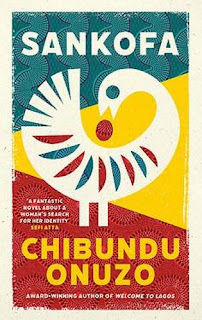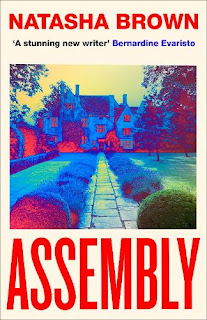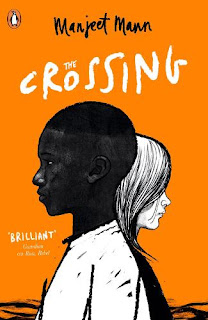Reviewer: Catriona Troth
What We Thought of It:
“You came to meet a man in the past. There is a mythical bird we have here, Anna. We call it Sankofa. It flies forward with its head facing backwards. It’s a poetic image, but it cannot work in real life.”
Clearing out the
house after the death of her mother, Anna comes across a notebook written by the
father she never knew. Written when he was a young African student on the fringes
of radical politics, it reveals a story she was never told – of how her parents
met. Yet it ends abruptly, without explanation as to why he left and never came
back.
With these clues to
go on, she begins to research his name, and discovers to her shock that her
father became the first President of Bamana, the country of his birth. And that
his legacy is anything but straightforward.
She first tracks
down the British academic who wrote his biography and then, with great trepidation,
travels to Bamana to confront her father and learn something about her own
identity. But Anna finds herself an obroni (foreigner) in Bamana, out of
her depth, pulled in different directions, judging the country – and her father
– with European eyes.
Initially
suspicious, her father – still a powerful and wealthy man – makes her a Bamanan
citizen and then takes her to his country home, an estate where he wields enormous
power and where they call him Daasebre: “we cannot thank you enough”.
But other members of
the family are less than happy at the appearance of this previously unknown
eldest daughter from England. And when Anna begins to challenge some of her
father’s actions, things get complicated. Is there a way for Anna to find a
reconciliation between the two parts of herself?
Sankofa is an exploration
of how identity impacts those of African heritage, of the complicated
relationship between Europe and Africa and how it affects them, their values
and their sense of self. Onuzo, like Anna, challenges both European and African
standards and assumptions.
You’ll Enjoy This If
You Loved: When We Speak of Nothing by Olumide Poloola; Admiring Silence by
Abdulrazak Gurnah; The Private Joys of Nnenna Maloney by Okechukwu Nzelu; Brit(ish)
by Afua Hirsch
Avoid If You
Dislike: Fictionalised versions of Africa
Perfect
Accompaniment: A bottle of ice cold water and a sketchpad and paints
Genre: Contemporary,
Literary




